- Home
- Harry Harrison
Stars And Stripes In Peril Page 5
Stars And Stripes In Peril Read online
Page 5
General William Tecumseh Sherman was at his desk in the War Department soon after dawn. It was still dark when the surprised sentry had sent for the officer of the day to unlock the big front door. The past days had been busy ones, arranging first for the rifles and ammunition to be assembled, then to arrange for it to be shipped west. At the same time they were gathering all of the field guns that could be mustered to follow after the rifles. Batteries from both the North and the South mingled together; so far there had been no complaints and both sides had worked together as one. While Sherman had been doing this all of his other work as commander of the Armies had been neglected. Now there seemed to be no end to the paperwork that accumulated on his desk—and no end as well to his efforts to reduce it.
At seven o'clock Sherman's aide, Colonel Roberts, slammed through the door, whistling shrilly as he came. He stopped abruptly when he saw his commanding officer already at work.
"Sorry, sir. I didn't know you were here."
"I'm just as sorry as you are, Sam. I woke up in the middle of the night thinking about the list of acquisitions we have to send to the Congressional committee—and I couldn't get back to sleep. Figured I could work on it here better than I could in bed. And the guns as well. I am stripping our artillery of all the smooth-bore, unrifled cannon that can be found. They are going to Mexico where they will do good service in an army that has not been trained in the use of more modern rifled guns. And they will be easier to supply with munitions. Yet we must not be left defenseless. Parrott and all of the other foundries must step up production. I don't care if they work twenty-fours a day. We need those guns."
"I shall get onto that matter at once. But first—can I get some coffee, General?"
"If you don't I'll court-martial you. And if you do I'll put you in for light colonel."
"On the way, sir!"
Sherman stretched his legs out and sipped gratefully at the hot coffee. He pushed a sheet of paper across the desk.
"We're losing another regiment. The 14th New York's enlistment is about up. At this rate we're not going to have much of an army left soon."
"What we need is another good war."
"We may just be having that. Did you read the report from Room 313?"
"No. Was I supposed to?"
"Not officially—but I want my staff to know everything that I know. It's early days yet there. The British troops have landed in Mexico, but they don't seem to be going anywhere yet. Although they are laboring away at building a road through the jungle. But there is more in the report. There is the matter of the Mexican irregulars. A confidential report about the plan we are making with Juarez to let his people in the Oaxaca mountains take care of the British troops all by themselves."
"I didn't see that," Roberts said.
"You wouldn't—there's just the single copy addressed to me, for my eyes only. So don't let on that you know about it just yet. There is a lot of secrecy in the workings of Room 313, and I am sure that there is good need for it. But I want my staff to know everything that I know, no matter what Room 313 thinks. It would be impossible for us to work efficiently if I am forced to keep vital facts from you."
There was a knock on the door and Roberts went to open it; took the message form from the sergeant.
"I think this is what you have been waiting for, General. Word from the ground range at Suitland. They're doing a test firing of the gun today and they wonder if you want to be there."
"Damn right I do. It will also be my greatest pleasure to get away from the paperwork for a bit." Sherman pushed his chair back and climbed to his feet. "Get our horses saddled. Spring is here and this is a fine day to be out of the office."
They trotted down Pennsylvania Avenue on the bright, sunny morning. General Sherman returned the salute of a passing troop of cavalry and almost seemed to be enjoying himself.
But it was all too brief a ride to the artillery range at Suitland. The guards at the gate of the ground range presented arms as they rode in. General Ramsay must have been waiting for them, for he came out of the office and stood by the hitching post as they rode up.
"I hope you have some good news," Sherman said.
"Just about as good as can be expected. You'll see for yourself. You must remember those demonstrations of the Gatling gun?"
"Indeed I do. But I feel that it was an idea that was before its time. We would all love to have a gun that could fire continuously, spitting out bullets at a fair clip. But as I remember this gun kept jamming. They spent more time prying out defective rounds than they did shooting."
"They did indeed. But Ordnance has taken that 1862 model of the .58 caliber Gatling and has improved it beyond belief."
"In what way?"
"For one thing it was too heavy to move around and its rate of fire was too slow. Not only that but the paper cartridges in steel chambers tended to jam in the gun as you said. They've abandoned that approach and redesigned the weapon completely. Now the gun uses rim-fire copper cartridges. They slide easily into battery and are ejected smoothly, which in turn keeps the jams down to a very low figure. Another fault was that the bores in the barrels of the original model were tapered. Because of this the barrels and the chambers did not always align exactly which caused misfires, shots in the open receivers, and all other kinds of mischief. Decreasing the tolerances in the machining has taken care of that. There sir, see for yourself."
They walked over to the firing range to join the small group of officers who were already gathered there. Sherman was only vaguely aware of them since his attention, like theirs, was focused on the deadly-looking weapon mounted there.
The Gatling gun model of 1863 was an impressive weapon, from its shining brass receiver to its six long, black barrels. Ramsay pointed to the V-shaped container atop the gun.
"The cartridges are loaded into this hopper and are fed down by gravity. When the handle is turned the cartridges are loaded into the barrels one at a time. The six cam-operated bolts alternately wedge, fire and drop chambers to eject the spent cartridges."
"And the rate of fire?"
"Just as fast as the handle can be turned and cartridges loaded into the hopper. Say five rounds a second, three hundred a minute."
Sherman nodded as he walked around the gun, admiring it. "Those are mighty good figures. How mobile is it?"
"This model weighs half as much as the first one. It can be pulled by a single horse and can easily keep up with the infantry. Add two more horses for the ammunition and you have a mighty impressive weapon here."
"Let us see it in action."
The waiting gunnery team jumped forward at the sergeant's command. The hopper was filled, the elevation handle locked into place, the gunners ready.
"Fire!" the sergeant shouted.
The sound was an ear-splitting roar. The gunner traversed as his loader cranked furiously at the handle. The row of wooden-framed paper targets two hundred yards distant tore and splintered. If they had been enemy soldiers they would all be dead.
"Cease fire!"
The smoke drifted away. The silence was numbing after the ripsaw sound of the gun. The targets fluttered away in torn fragments. Sherman nodded as he looked at the destruction that the single gun had wrought.
"I am most impressed," he said, "Most deeply impressed. I can see them on the battlefield already. Dig them in and there is no force—of infantry or cavalry—that will be able to take a position so guarded. This is going to have a profound effect on the way we fight battles—take my word for that. Now get them into production so when we need them they will be there. I want to see a thousand of them ready for action as soon as it can be done."
As General Sherman turned away his glance fell on the other officers who had come to witness the test firing of the Gatling gun. One of them looked familiar—very familiar. Where...? Of course!
"Captain Meagher of the New York 60th." He glanced at the man's shoulders and smiled. "Or Colonel Meagher, I should say. And how is the wound?"
/> "Fit as a fiddle and raring to go. Sure but the Englishman that's able to kill this Irishman has not been born yet, General."
"And a good thing too," Sherman said, frowning at the memory of that day's battle when an overwhelming force of British soldiers had all but destroyed the Irish regiment. "They wiped out your regiment, didn't they?"
"They tried, General, they certainly tried. But killing Irishmen, why that's like the old Greek story of cutting down one man and a hundred growing in his place."
"That's right—you have an Irish Brigade now—"
"In which I am most happy to serve. If you want to see professional soldiers you must see us on parade! Almost all of the men are veterans, proud fighters, transferred in from almost every regiment in the army—both north and south. And we have plenty of young volunteers, all of them yearning to join in with other Irishmen. And we've trained them hard, until I do believe that the recruits are as good as the veterans. They're a fine lot and eager as spit to be let loose on the English. And we're stationed close by, part of the Army of the Potomac now. You must come around to our mess and have a drink of some good poteen. All of us are sons of Erin, but now good Americans to a man."
"I might very well do that, Colonel Meagher, I might very well." He started away, then turned back. "Have you seen the reports—the new troubles with the British?"
"Seen them, sir—why I've memorized them! When the time comes to start shooting at the English again, you must never forget that you have an entire brigade of volunteers ready and willing for your command."
"Most commendable, Colonel," Sherman said, smiling. "Take my word—I shall not forget that."
WE SHALL NOT FORGET
"Are you coming then, Tom? For I have an almighty thirst that is near to killing me."
The words were clearly heard through the thin canvas of the army tent. Colonel Thomas Francis Meagher finished pulling on his boots as he called back. "I'm coming, Paddy, you can be sure of that."
He went out and joined his friend and they strolled to the Officers' Mess together. Captain P. F. Clooney, like many of the officers of the Irish Brigade, was a veteran soldier even before he had joined the American army. He had served in an earlier Irish unit, the Irish Brigade of St. Patrick, which had fought in defense of the Papal States against Garibaldi. When the hostilities ended, torn by his loyalty to the Papacy and sympathetic to Garibaldi's cry for freedom, he had turned his back on both of them and had emigrated to the United States, where he had enlisted in the American army.
The Officers' Mess was in a sturdy building that had been a farmhouse standing on the grounds where the Irish Brigade now pitched their tents. When Meagher and Clooney came through the front door they discovered that the meeting of the other officers was already under way when they arrived. It was the first Sunday of the month when all of the members of the Fenian Officers' Circle met together. This was the focal point of the revolutionary group in the army that supported the Fenian movement in Ireland. Men who were dedicated to the liberation of Ireland from British rule. But today they had another problem to consider. Captain O'Riley called out as they entered.
"Tell us, Francis, is the rumor true that we are to have new uniforms?"
"Not a rumor but a fact, my old son," Meagher said. "It's the new recruits you see. During the war we were a Northern regiment and proudly wore the blue of our country. Now that the war is over we are no longer just a regiment, but have grown to be a brigade. Lots of good soldiers have joined us from what was the Southern army and the mixture of uniforms in our ranks has been something wicked to see. The War Department, in its wisdom, has been considering uniform changes for some time. In the new kind of war that we are fighting, with new and more accurate guns, a more neutral sort of color of the uniform is very much in order. We have all seen what lovely targets the red British uniforms provide!"
There were shouts of "hear, hear" and some wild whistling. Meagher held up his hands for silence.
"Khaki, a sort of grayish brown, has been chosen. It may look a bit like mud, which is not a bad idea when you are lying down in the stuff. I, for one, am in favor of it. Anything that does not make a soldier stand out in the battlefield is a good thing. Of course we will keep our dress uniforms for important occasions, and dances and suchlike."
"When do we get our mud duds?" someone called out.
"A week or two. They'll let us know."
The door slammed open and Captain John Gossen came in. His expression was black, his mien angry when he hurled his coat onto a chair.
"Betrayal!" he said as he glowered around at the other officers.
The usual air of good cheer and friendliness seemed to vanish in an instant.
"What's wrong?" Meagher asked.
"Death and betrayal," Captain John Gossen said bitterly, his manner now so different from his usual lively self. He had served previously with the Seventh Hussars of Austria, a dashing Hungarian regiment. "That miserable schoolmaster, Nagle, is in the pay of the British. Luby, O'Leary and Rossa have been arrested. The Irish People suppressed." He was talking about the Fenians in Ireland, and their official newspaper.
"They never!" Meagher cried aloud.
"They did," W.L.D. O'Grady said darkly. "I heard the same news myself, but I couldn't believe it. I'll believe anything about the English. I know the bastards. They'll try them in a kangaroo court—then shoot them." He did know the English very well, having once served in the Royal Marines.
"Is there nothing we can do?" Clooney asked.
"Little enough," Meagher said, chewing over the bad news. "Send them money—they'll need it for lawyers if there is a trial. And we will have to find a way to reorganize from the ground up. Our newspaper is suppressed, everyone taken I imagine—or on the run. If there is one informer in the organization there are bound to be others. Betrayal is in the air."
"Aye—and right here in America, in New York City as well," O'Grady said. "Red Jim MacDermot, him with the flaming beard, there is good reason to consider him an informer as well. Yet John O'Mahony who runs the office won't hear a word said about him. But I have had a letter, from someone I can trust, that says he was seen coming out of the British Consul's office."
"I believe it," Meagher said, "but you'll never sell it to O'Mahony. Which means as long as he runs the New York office of the Fenians, the British will know everything that we do. Which means in turn that we must find a better way to further the cause. The first precaution must be to separate our Fenian Officers' Circle here from the group in Ireland. There is no other way. With all of the leaders now captured we have a body without a head. I feel that we must start again from scratch. We must forget all of them. We'll draw on the Irish-American community here for money. There will be no more recruiting in Ireland, for it seems we have recruited as many informers as we have loyal Irishmen."
"And then what do we do?" Clooney asked.
"We must put our thinking caps on," Meagher said. "And find a way to do it right for a change. But enough of that now! For the moment let us drown our sorrows. Is the milk punch ready?"
"It is indeed!"
With serious matters put aside they turned their attention to this lethal drink. The Fenian milk punch was concocted of whisky and condensed milk, seasoned with nutmegs and lemons, then stirred with a little hot water. Surgeon Francis Reynolds was the bard of the brigade and when they raised their glasses and mugs he cheered them on with a song.
"See who comes over the red blossomed heather,
Their green banners kissing the pure mountain air,
Heads erect! Eyes to front! Stepping proudly together...
Out and make way for the bold Fenian men."
This was well received. So much so that Surgeon Reynolds went on with all the rest of the verses hailing the fame of the Fenians. In the midst of all this jollity no one at first seemed to notice the two men who had entered and stood quietly by the door listening to the singing. It was only when Meagher went to refill his glass from the punch b
owl that he noticed the newcomers and called out cheerily.
"Is that Gus Fox himself who has come to join us in our festivity? Come in, come in! Gentlemen of the Fenian Circle, meet the honorable Gustavus Fox, the Assistant Secretary of the Navy."
He used that title, rather than any other that would explain their relationship. In truth, with his Fenian and other Irish contacts, Meagher had long been part of Fox's intelligence-gathering organization.
"A glass of punch, now, that's a good man. No, make it two, one each for Gus and his friend."
They took the glasses, but before they could drink Fox raised his hand for silence, then took an official-looking envelope from his pocket. "I have just come from the War Department where, as you all undoubtedly know, they rest not nor do they sleep."
There were catcalls and laughter at this. Fox waited for the sounds to die down before he held out the envelope. "This is for Colonel Meagher. Since I was on my way here I volunteered to act as messenger. Here you are, sir."
Meagher read it through slowly, then climbed to his feet and called for silence.
"Boys, I want you all to hear this. You know that I have been in command of my regiment while we wait for General James Shields to arrive and assume command of the entire brigade. He's Irish-born and a fine officer, or so I have been told. Unhappily for us the general has turned down command of the Irish Brigade. Sore news indeed."
Meagher's expression belied his words for he was smiling from ear to ear.
"Now I have even worse news for you. That good-for-nothing, lollygagging, Colonel Meagher has been appointed brigadier general and will take command at once."
The news was greeted with great enthusiasm, more milk punch was poured, and Meagher was carried around the room on the shoulders of his officers. When the noise had abated slightly Fox added to the congratulations, then drew Meagher aside, towards the young man who had waited quietly by the door sipping his drink.
"Jim," he said, "I want you to meet an associate of mine who has just returned from a fact-finding trip to Mexico. Jim Meagher, this is Ambrosio O'Higgins."

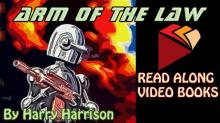 Arm of the Law
Arm of the Law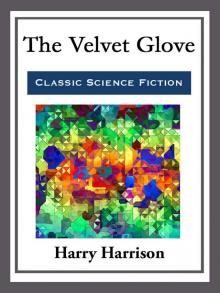 The Velvet Glove
The Velvet Glove The K-Factor
The K-Factor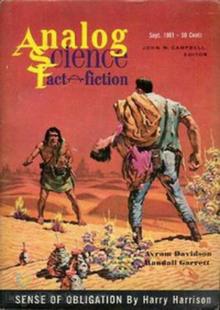 Sense of Obligation
Sense of Obligation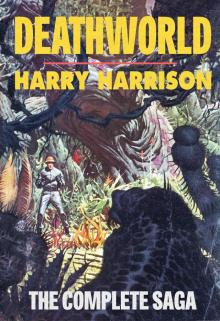 Deathworld: The Complete Saga
Deathworld: The Complete Saga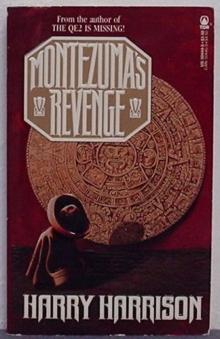 Montezuma's Revenge
Montezuma's Revenge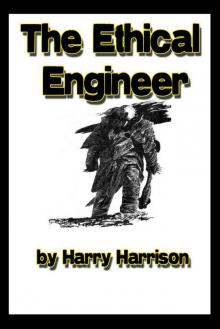 The Ethical Engineer
The Ethical Engineer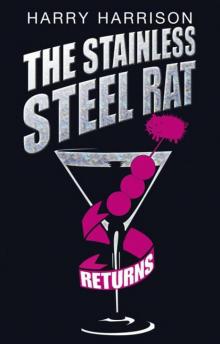 The Stainless Steel Rat Returns
The Stainless Steel Rat Returns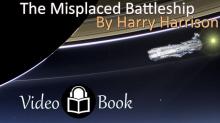 The Misplaced Battleship
The Misplaced Battleship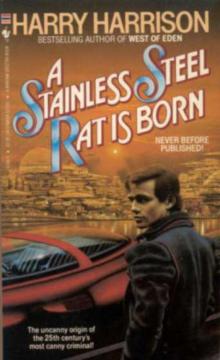 The Stainless Steel Rat is Born
The Stainless Steel Rat is Born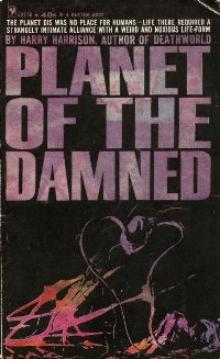 Planet of the Damned bb-1
Planet of the Damned bb-1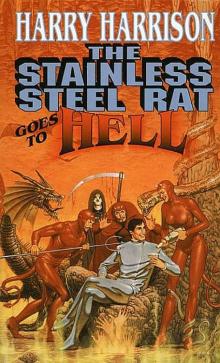 The Stainless Steel Rat Goes to Hell ssr-10
The Stainless Steel Rat Goes to Hell ssr-10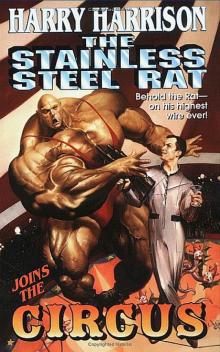 The Stainless Steel Rat Joins the Circus ssr-11
The Stainless Steel Rat Joins the Circus ssr-11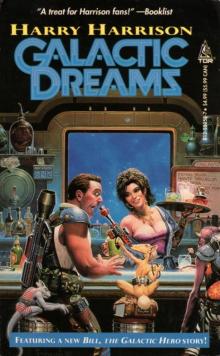 Galactic Dreams
Galactic Dreams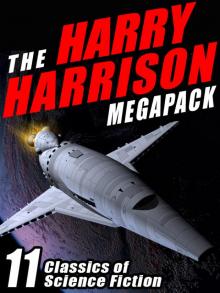 The Harry Harrison Megapack
The Harry Harrison Megapack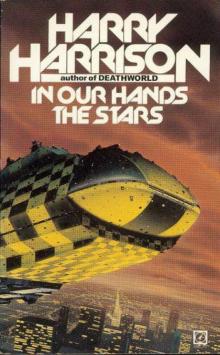 In Our Hands the Stars
In Our Hands the Stars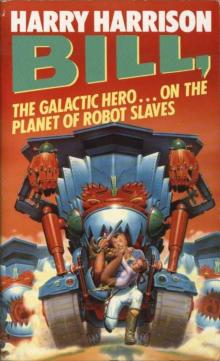 On the Planet of Robot Slaves
On the Planet of Robot Slaves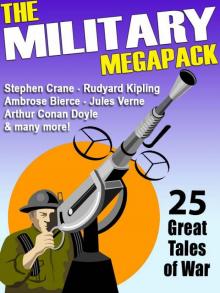 The Military Megapack
The Military Megapack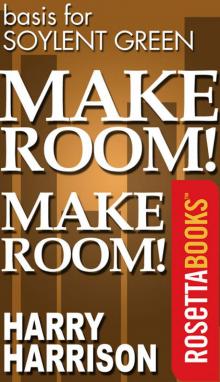 Make Room! Make Room!
Make Room! Make Room!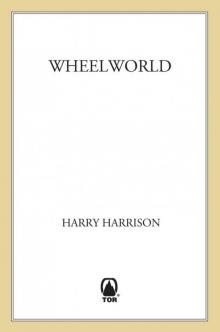 Wheelworld
Wheelworld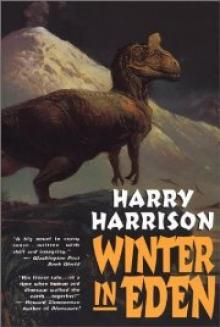 Winter in Eden e-2
Winter in Eden e-2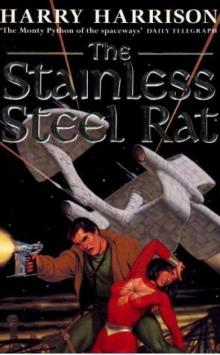 The Stainless Steel Rat
The Stainless Steel Rat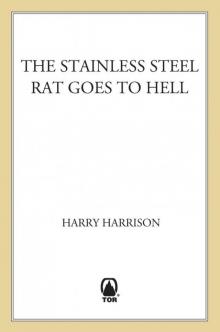 The Stainless Steel Rat Goes to Hell
The Stainless Steel Rat Goes to Hell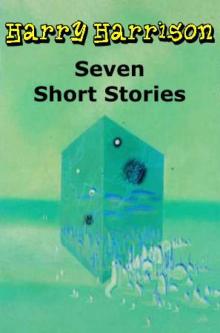 Harry Harrison Short Stoies
Harry Harrison Short Stoies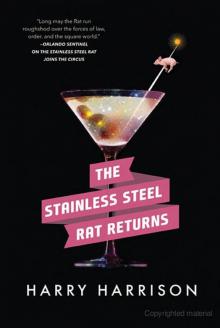 Stainless Steel Rat 11: The Stainless Steel Rat Returns
Stainless Steel Rat 11: The Stainless Steel Rat Returns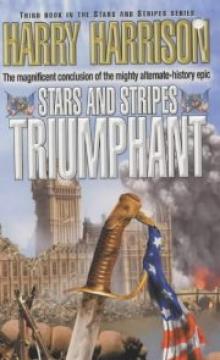 Stars and Stripes Triumphant sas-3
Stars and Stripes Triumphant sas-3 West of Eden
West of Eden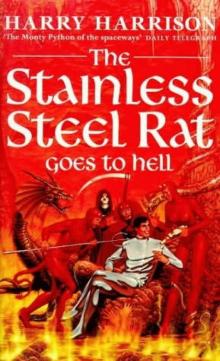 The Stainless Steel Rat Go's To Hell
The Stainless Steel Rat Go's To Hell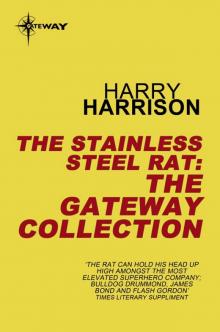 The Stainless Steel Rat eBook Collection
The Stainless Steel Rat eBook Collection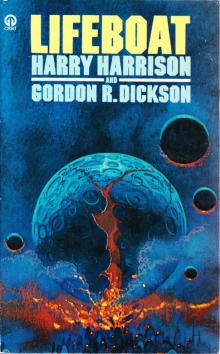 Lifeboat
Lifeboat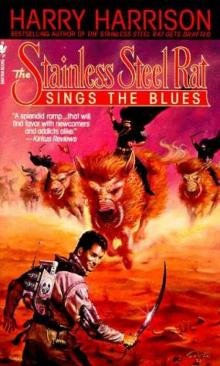 The Stainless Steel Rat Sings the Blues
The Stainless Steel Rat Sings the Blues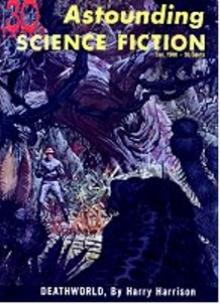 Deathworld tds-1
Deathworld tds-1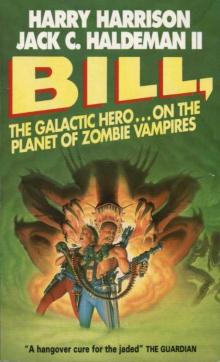 On the Planet of Zombie Vampires
On the Planet of Zombie Vampires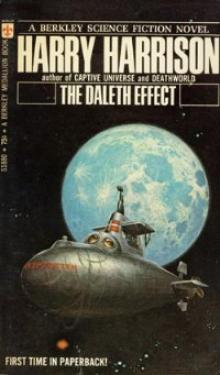 The Daleth Effect
The Daleth Effect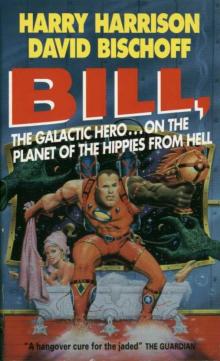 On The Planet Of The Hippies From Hell
On The Planet Of The Hippies From Hell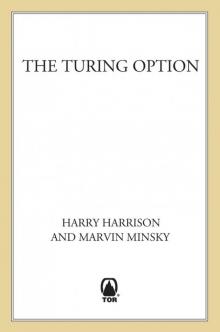 The Turing Option
The Turing Option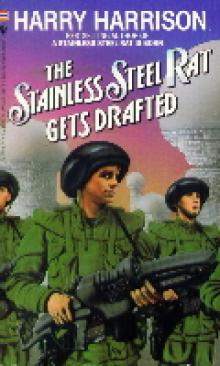 The Stainless Steel Rat Gets Drafted
The Stainless Steel Rat Gets Drafted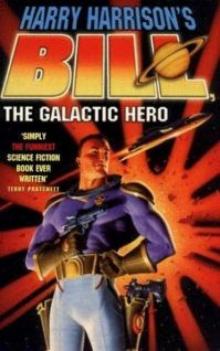 Bill, the Galactic Hero btgh-1
Bill, the Galactic Hero btgh-1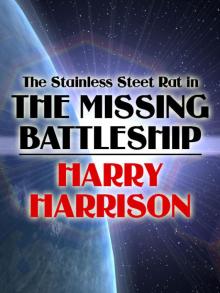 The Stainless Steel Rat in The Missing Battleship
The Stainless Steel Rat in The Missing Battleship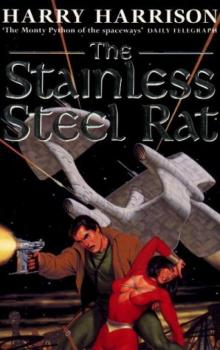 The Stainless Steel Rat ssr-1
The Stainless Steel Rat ssr-1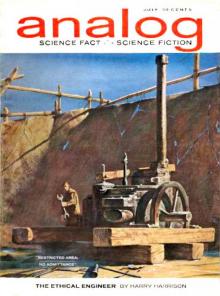 The Ethical Engineer (the deathworld series)
The Ethical Engineer (the deathworld series)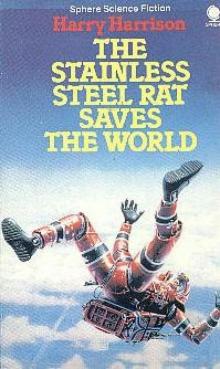 The Stainless Steel Rat Saves the World ssr-3
The Stainless Steel Rat Saves the World ssr-3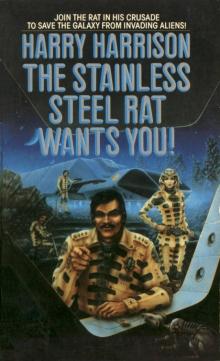 The Stainless Steel Rat Wants You
The Stainless Steel Rat Wants You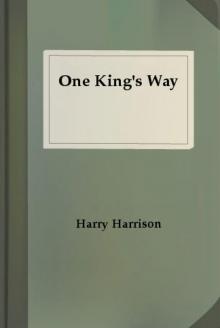 One King's Way thatc-2
One King's Way thatc-2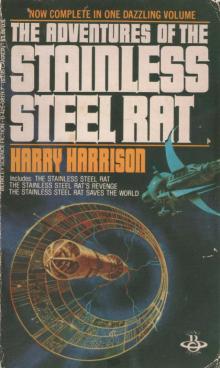 The Stainless Steel Rat Saves The World
The Stainless Steel Rat Saves The World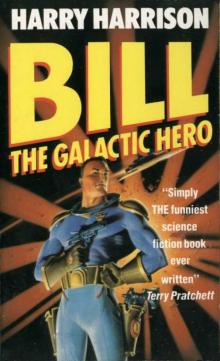 Bill, the Galactic Hero
Bill, the Galactic Hero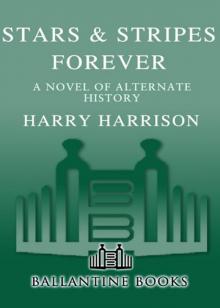 Stars & Stripes Forever
Stars & Stripes Forever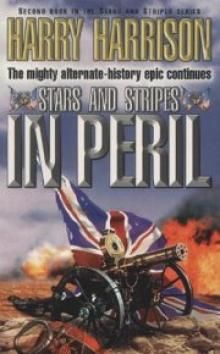 Stars and Stripes In Peril sas-2
Stars and Stripes In Peril sas-2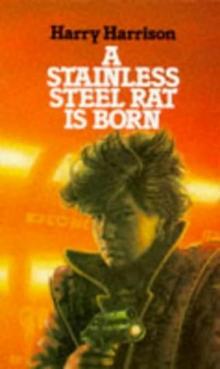 A Stainless Steel Rat Is Born ssr-6
A Stainless Steel Rat Is Born ssr-6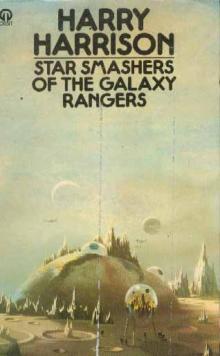 Star Smashers of the Galaxy Rangers
Star Smashers of the Galaxy Rangers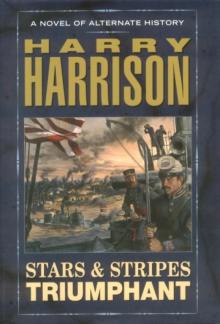 Stars & Stripes Triumphant
Stars & Stripes Triumphant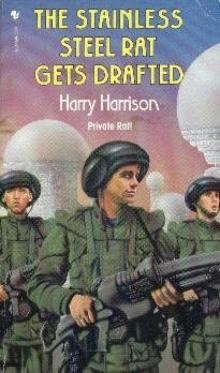 The Stainless Steel Rat Gets Drafted ssr-7
The Stainless Steel Rat Gets Drafted ssr-7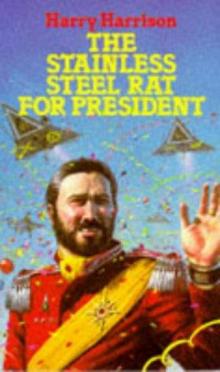 The Stainless Steel Rat for President ssr-5
The Stainless Steel Rat for President ssr-5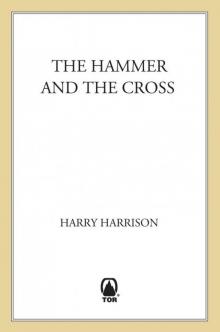 The Hammer & the Cross
The Hammer & the Cross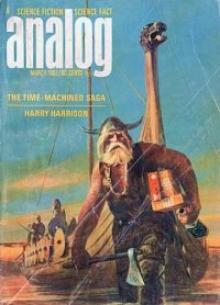 The Technicolor Time Machine
The Technicolor Time Machine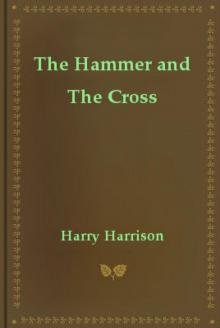 The Hammer and The Cross thatc-1
The Hammer and The Cross thatc-1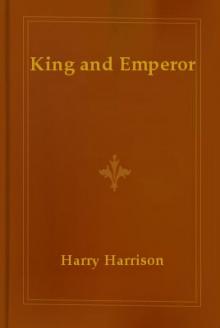 King and Emperor thatc-3
King and Emperor thatc-3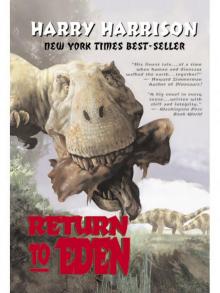 Return to Eden
Return to Eden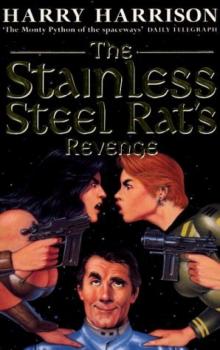 The Stainless Steel Rat’s Revenge ssr-2
The Stainless Steel Rat’s Revenge ssr-2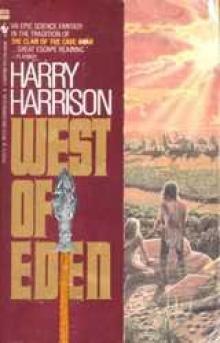 West of Eden e-1
West of Eden e-1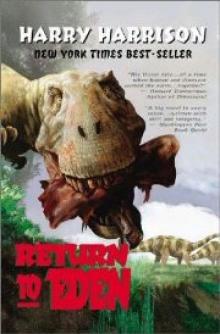 Return to Eden e-3
Return to Eden e-3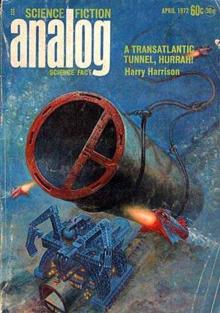 A Transatlantic Tunnel, Hurrah!
A Transatlantic Tunnel, Hurrah!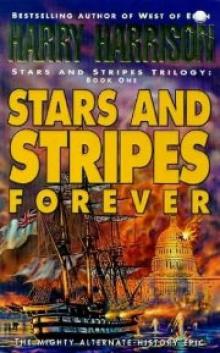 Stars and Stripes Forever sas-1
Stars and Stripes Forever sas-1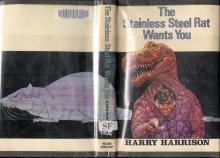 The Stainless Steel Rat Wants You ssr-4
The Stainless Steel Rat Wants You ssr-4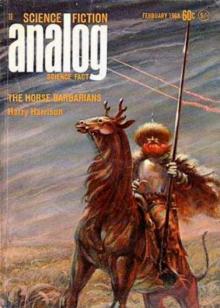 The Horse Barbarians tds-3
The Horse Barbarians tds-3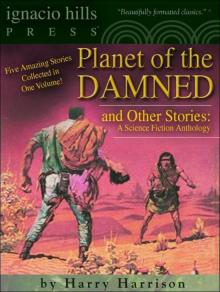 Planet of the Damned and Other Stories: A Science Fiction Anthology (Five Books in One Volume!)
Planet of the Damned and Other Stories: A Science Fiction Anthology (Five Books in One Volume!)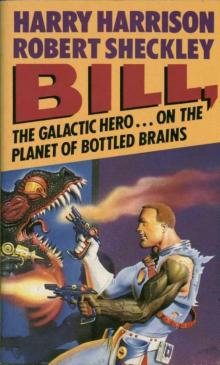 On the Planet of Bottled Brains
On the Planet of Bottled Brains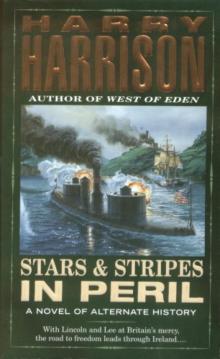 Stars And Stripes In Peril
Stars And Stripes In Peril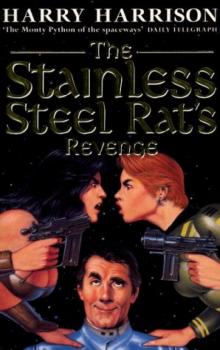 The Stainless Steel Rat's Revenge
The Stainless Steel Rat's Revenge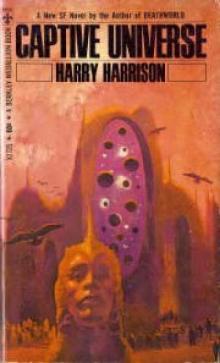 Captive Universe
Captive Universe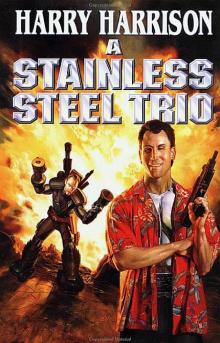 The Stainless Steell Rat Sings the Blues ssr-8
The Stainless Steell Rat Sings the Blues ssr-8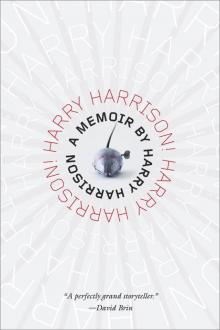 Harry Harrison! Harry Harrison!
Harry Harrison! Harry Harrison!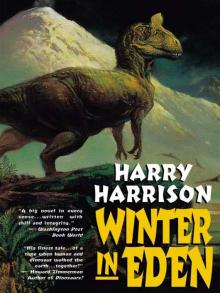 Winter in Eden
Winter in Eden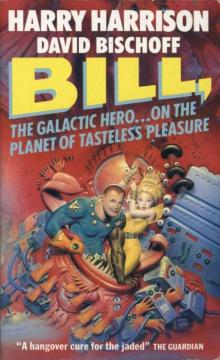 On the Planet of Tasteless Pleasures
On the Planet of Tasteless Pleasures